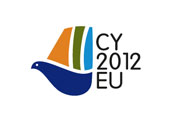Transport: VP Kallas to discuss with ministers how to make intelligent transport systems a reality
16/07/2012

On 16 and 17 July 2012, the transport and telecommunications ministers will meet in an informal council in Nicosia to discuss how to optimise the use of information and communications technologies for transport. Ministers will review means to lift existing barriers to the deployment of Intelligent Transport Systems (ITS) in the EU. The focus is on access to transport-related "open data", on tools for planning and integrated ticketing for journeys across Europe using various transport modes, and on the deployment of intelligent systems and services on the trans-European transport (TEN-T) network and in European cities.
Vice-President Siim Kallas said: "We need to develop European multimodal journey planners and other ITS applications in Europe. To make the best use of all existing transport modes and infrastructure, we need to ensure the availability, accessibility and exchange of all relevant information, such as schedules, capacity, and paths. The Commission will put forward ideas to support the private sector in developing multimodal transport planning and information services across Europe. This will allow new services like route planners or smart reservation and payment to spread for both passengers and freight, going beyond national borders and offering alternative transport modes."
What is being discussed?
Currently, intelligent transport systems (ITS) – in particular multimodal journey planners – are being tested and developed, but their deployment remains too sparse and too fragmented. One major obstacle is insufficient and difficult accessibility of data held by transport operators.
The Commission will express its intention to come up with a schedule to support implementation of "Multimodal Transport Planning and Information Services" and more broadly of a coherent roadmap for the deployment of ITS on the TEN-T network and in European cities. In partnership with industry, this should accelerate the market uptake of intelligent services for transport. Guaranteeing access to transport data, ensures developers and service providers can provide passengers or freight forwarders the information and services needed to optimise, in real-time, a journey or route, depending on the actual traffic situation or even taking account of unforeseen events, such as the 2010 ash crisis.
What are the next steps?
Under the ITS legal framework, specifications for eCall – the pan-European 112-based emergency in-vehicle call system – universal traffic information, and information services for safe and secure parking places are all to be adopted by the end of this year. The Commission stresses that the adoption of the Connecting Europe Facility (CEF) and Horizon 2020 in support of information and transport infrastructure were fundamental in setting the future funding framework for ITS deployment.
Background
The informal ministerial Council in Nicosia brings together European Commission Vice-President Siim Kallas, responsible for transport and mobility, and transport and telecommunications ministers of the 27 Member States [and Croatia], as well as Brian Simpson, chairman of the TRAN Committee of European Parliament.
Intelligent Transport Systems have a great potential to contribute to transport policy objectives, as was underlined in the 2011 Transport White Paper and echoed in the Digital Agenda for Europe. The Commission is actively engaged in developing, in the framework of the ITS Directive, the specifications needed to address some of the interoperability issues, so as to unlock wider deployment of ITS solutions. Specifications on eCall, the pan-European 112-based emergency in-vehicle call system, on road-safety related minimum universal traffic information and on information services for safe and secure parking places are expected to be adopted by the end of this year.
Multimodal journey planners include all transport modes and all public transport options. They give users all the information they need to plan their journey door-to-door with a few simple clicks and allow people to travel in a way that best suits their needs: quickest option, the cheapest option, or one that least affects the environment. Cities in particular, but also many other parts of the transport system face increasing congestion. Better travel planning is one tool that can promote the use of alternative transport solutions, making the entire system more sustainable.
More information:
Smart mobility challenge - key questions and answers [MEMO/12/175]
Transport: First Smart Mobility Challenge – and the winner is … [IP/12/233]
Contacts :
Helen Kearns (+32 2 298 76 38)
Dale Kidd (+32 2 295 74 61)


